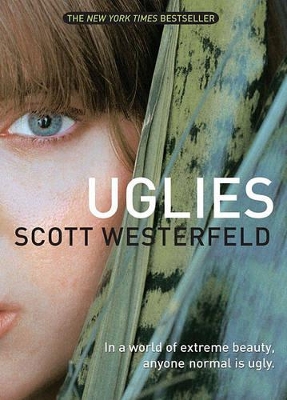Reviewed by Briana @ Pages Unbound on
The theme of what constitutes true beauty is present, however, and Westerfeld does a good job of incorporating character discussions about inner vs. outer beauty, changing concepts of beauty, and the dangers of everyone’s trying to be the same. Interestingly, however, the idea that people should not try to look a certain way is not the main argument of the novel. In fact, Westerfeld partially undermines this interpretation when he reveals (spoiler warning!) that the government is altering people’s brains in addition to their bodies. They are forcing people to think and behave in a certain manner. The fact, then, that the people in New Pretty Town all look relatively the same—same full lips, same big eyes, same height, and same weight—is unimportant because their changed bodies are not the cause of their cause of their shallowness. One could imagine that it would (almost) be fine for them to undergo the operation to become pretty if the government would just leave their brains alone. This makes sense because obviously having large eyes and clear skin cannot make you a clueless, neglectful, or superficial person—but the beginning of the novel truly does set the reader up to believe becoming a prettier person somehow substantially alters personalities for the worse.
Of course, the government was able to physically alter people’s behavior only because they first mentally conditioned them to believe that there was only one right way to look. Uglies, then, functions as a cautionary tale about what can happen when individuality is eliminated—and how someone might convince an entire society to give up their individuality willingly.
This review was also posted at Pages Unbound Book Reviews.
Reading updates
- Started reading
- 1 July, 2011: Finished reading
- 1 July, 2011: Reviewed
